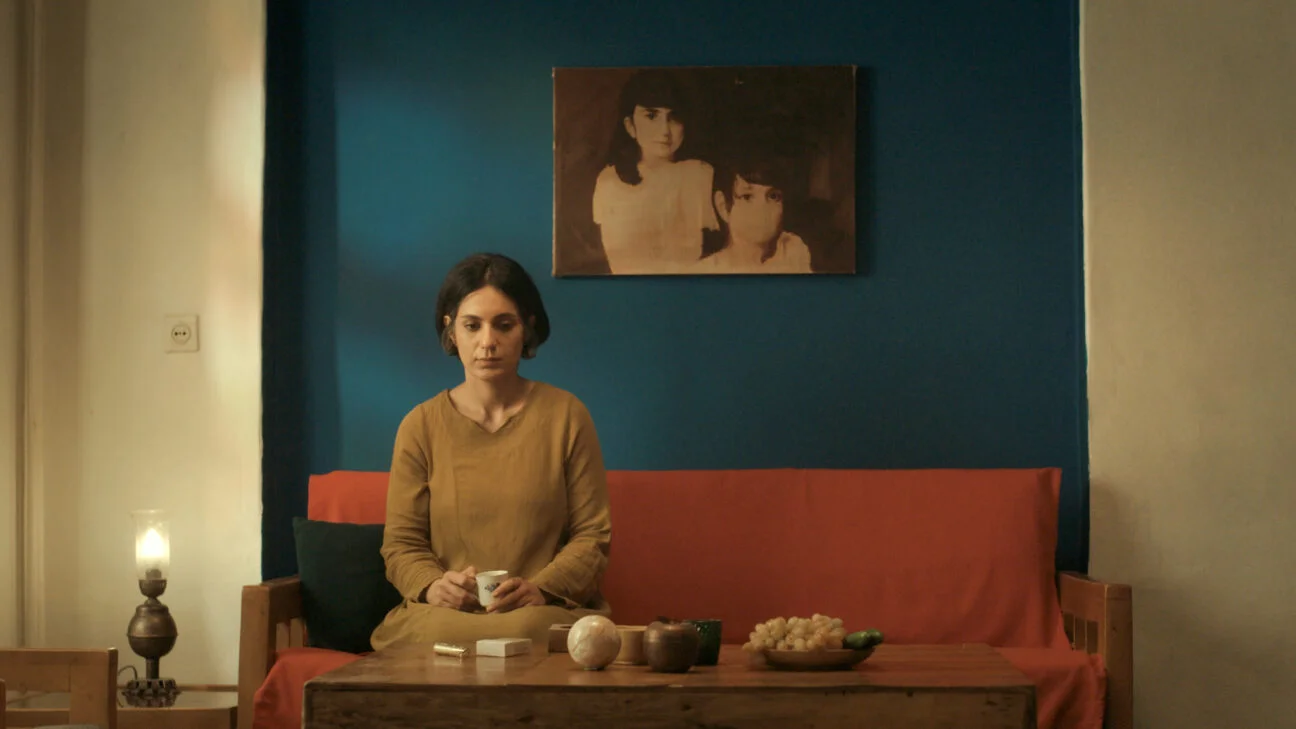In Farshad Hashemi’s debut feature film, “Me, Maryam, The Children, and 26 Others,” a 30-something woman who has been away from any kind of social interaction is suddenly thrust into a whirlwind of constant commotion in her house—the very place she feels would protect her, takes away her sanity. Now, for someone who has chosen to live a solitary life, a commotion would mean something truly offputting. To some extent, Mahboube (played by Mahboube Gholami) – our protagonist is also disturbed. Still, once we start learning about her, and in turn live alongside her, the commotion gives us a sense of hope.
The reason why the aforementioned commotion happens in Mahboube’s life and her home is because she rents out her humble abode to a short film crew. Director Farshad Hashemi plays Farshad, the production assistant responsible for everything that the film needs and the one who often interacts with Mahboube – trying to maintain a steep balance without getting out of budget or out of the contractual agreement the woman has signed for her house to be used as the film’s set.
Mahboube needs the money, but she is also very particular about the things she has in her house – the unfinished painting that her father was making, the utensils that have been passed on to her by her ancestors, and her prized collection of books that comfortably sit in the corner of her living room. She is not uptight by any means, although her reluctance to mend the basic things in her house may give her that personality. However, we are always aware that her past and her present have been altered because of some kind of loss or absence or both.

The politics of the Iranian society; her choice of being a woman who doesn’t wear a hijab and other things all become a part of this layered character sketch that firstly becomes a story about loneliness; then about finding small steps to rebel against the norm and most importantly how the process of creating something allows us to heal the wounds that have been hampering us from seeing the joys in life.
The short that the crew is making doesn’t necessarily feel too close to Mahboube’s life but like all great art, there’s always this offset chance that you might find some instances that ring true to your existence. So, in many ways, the short film in “Me, Maryam, The Children and 26 Others,” Mahboube feels seen in the character that she is witnessing. Director Farshad Hashemi does a great job of not using the metatexual nature of his narrative to make his film into some sort of celebration of cinema or the form itself because that might come off as pretentious. Instead, his story helps the protagonist – someone who has accepted her isolation as some kind of freedom – to realize how important it is to let people in. It also helps that the film is constantly funny – look out for the three jokes that are cracked amidst the production breaks and you will know why.
“Me, Maryam, The Children and 26 Others” makes us want to embrace Mahboube for her resilience, her readiness to accept art as her true form of therapy, and for being a character which helps us navigate our own little dilemmas. Eventually, the film focuses on the hopelessness and hopefulness of existence. It is not so much a tribute to cinema as it is about the labor and love for creating cinema.





![Involuntary [2008]: About Rule Breaking, Actions and the Consequences](https://79468c92.delivery.rocketcdn.me/wp-content/uploads/2016/04/involuntary-2-768x458.jpg)
![DRIB [2017]: Fantasia Film Festival Review](https://79468c92.delivery.rocketcdn.me/wp-content/uploads/2017/07/drib_promo_still_4-768x432.jpg)
![Turbo Cola [2022] Review – A Cool Drink Kinda 90s-Style Coming-of-Age Film](https://79468c92.delivery.rocketcdn.me/wp-content/uploads/2022/06/Turbo-Cola-Movie-Review-1-768x322.jpg)
![The Queen Of Fear [2018]: ‘Sundance’ Review](https://79468c92.delivery.rocketcdn.me/wp-content/uploads/2018/01/39616779111_ac3ec36a8a_o-768x432.jpg)